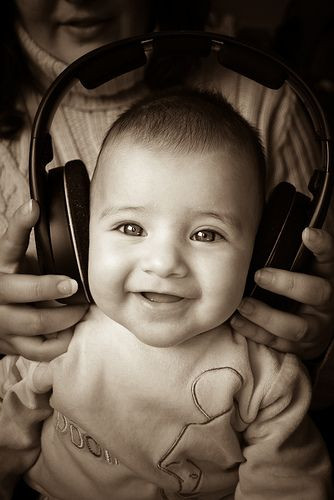Playing Music While Pregnant May Help Your Child's Hearing

It is sometimes suggested that listening to music while pregnant might help with the development of a fetus' brain. New research now finds that playing music during pregnancy correlates with a more developed auditory system.
A study done by the Institute of Behavioral Sciences at the University of Helsinki found that newborns already have experiences and memories of the surrounding world even before they leave the womb.
At 28 weeks, fetuses are capable of hearing and reacting to sound simulation. This is the reason why many psychologists and therapists believe that listening to classical music while pregnant can significantly benefit the health of a baby.
In a 2004, a Canadian study found that music helps parts of the brain that are responsible for spatial and mathematical intelligence.
Now, almost 10 years later, scientists are learning that the longer a fetus is exposed to certain sounds, the more positively its development is affected, depending on the music.
“Our results show that prenatal exposure to music can have long-term plastic effects on the developing brain,” the study's authors wrote.
A dozen Finnish women with non-complicated pregnancies participated in the learning group, while 12 other women were in the control group. The women in the learning group were instructed to listen to a CD five times per week from 29 weeks of pregnancy until they had given birth. One of the melodies included was “Twinkle Twinkle Little Star." In total, the women in the learning group played the CD between 46 and 64 times.
Four months after the babies were born, the scientists found that the babies reacted to the same sounds and showed a significant event-related potential (ERP) when they were exposed to the music again. So continually exposing a fetus to the same sounds may be beneficial to the development of its auditory functions.
Conversely, prenatal babies who are exposed to adverse sounds, such as workplace noises, might face long-term detrimental effects.
“Our results also suggest that the effects of prenatal exposure are much more long-lasting than reported in the very few studies conducted previously,” the authors wrote.
As of now, two to three of every 1,000 children in the United States are born deaf or hard-of-hearing, and more lose their hearing later during childhood.
The evidence is not yet conclusive, and the authors noted that further research is needed to determine if prenatal stimulation could be effective in helping to alleviate auditory deficits in newborns.
Published by Medicaldaily.com



























